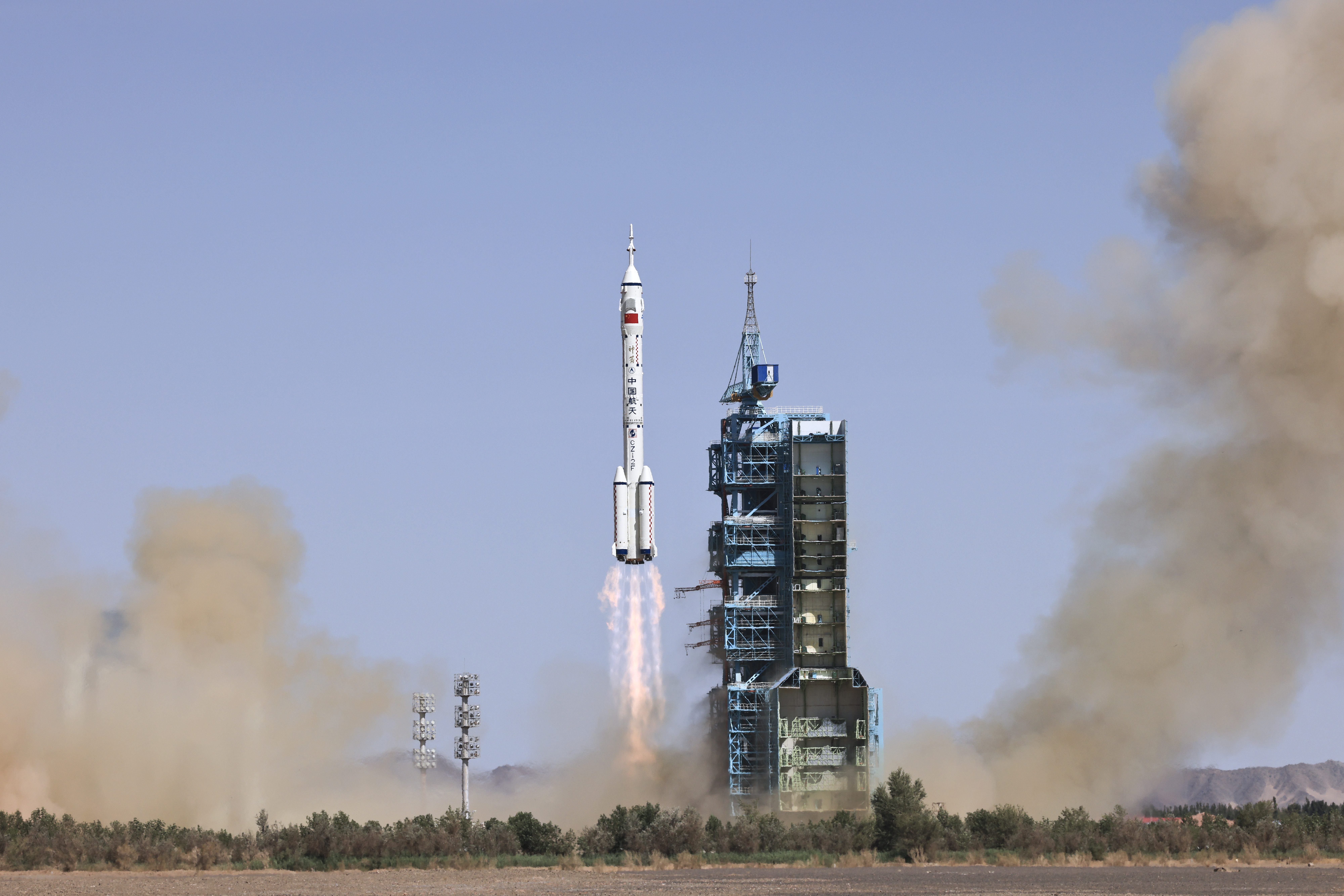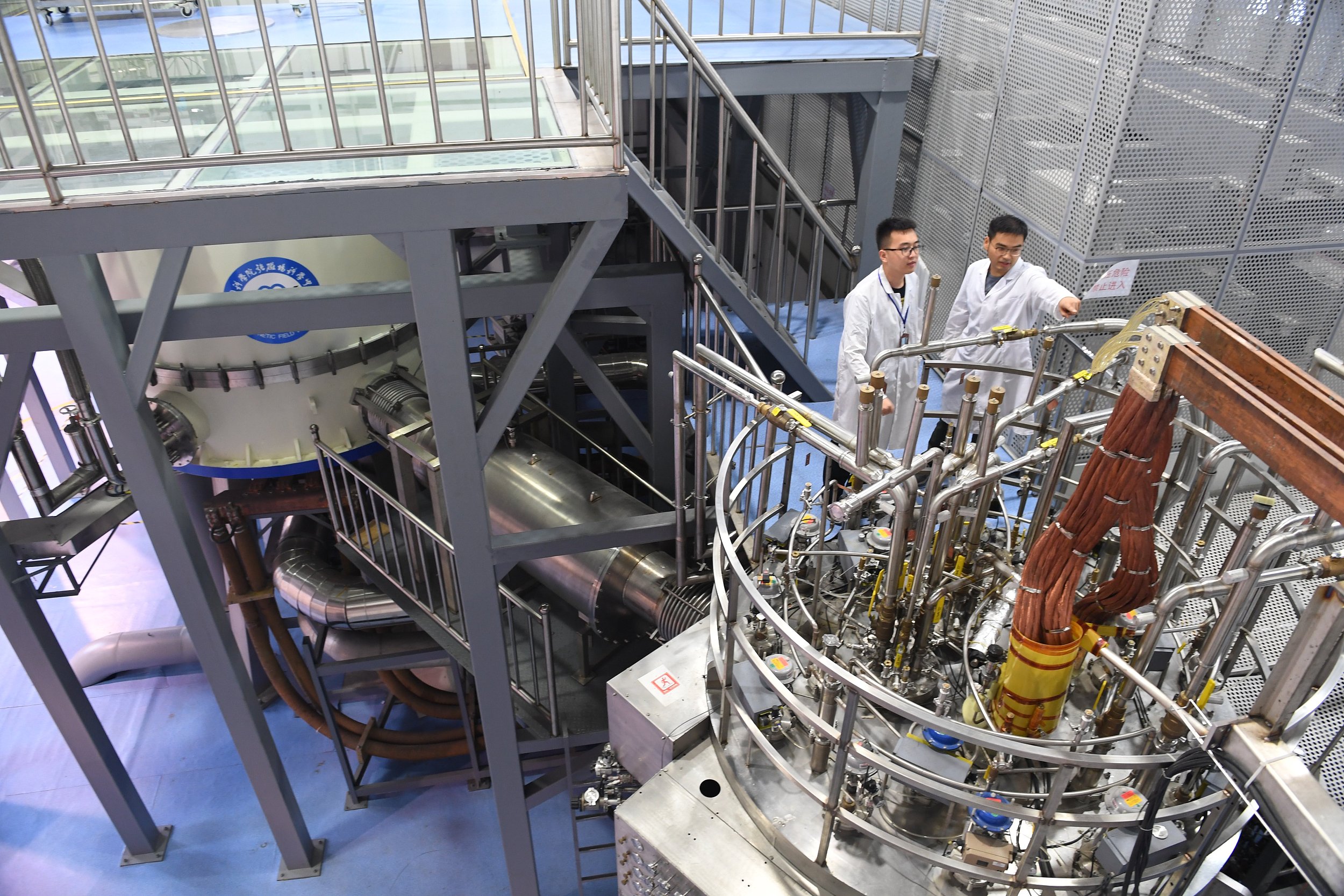CPC Builds China into Sci-tech Powerhouse
The crewed spaceship Shenzhou-14, atop a Long March-2F carrier rocket, is launched from the Jiuquan Satellite Launch Center in northwest China, June 5, 2022. (PHOTO: XINHUA)
By Ershad Shikdar
It is expected that amid much festivity and fanfare, the 101st anniversary of the founding of the Communist Party of China (CPC) will be celebrated across the country tomorrow. The party set out on its historic journey, with only 50 members, from a boat in Zhejiang, an eastern coastal province of China, on July 23, 1921.
The CPC is now the largest political party in the world, with over 90 million members. Just like many other parties, the CPC has gone through some ups and downs throughout its journey. It has had to live through many unusual challenges, including isolation, huge population growth, and several unjust wars imposed by superpowers.
After nearly three decades of its foundation, the CPC established the People's Republic of China (PRC) on October 1, 1949. Even after the establishment of a socialist country, the path ahead for the CPC was rocky.
However, the party has never forgotten its core goal of serving the people of China against all the odds. Therefore, the CPC could build every inch of China according to its vision, which met the expectations of the Chinese people. Looking back at history, it is easy to see how fast and effectively the CPC has improved the fate of China and its people.
Alongside achieving tremendous successes on the socio-economic front, the CPC has diversified its development programs and endeavors to other sectors too. The party has walked a long way to succeed in the remarkable development of education, science, technologies, and space science, to name a few. Under its prudent leadership, China has now become a pioneer in different sectors for the rest of the world, most notably a powerhouse of science and technologies.
China has eventually become home to more than 200 privately held technology startups (tech unicorns), each with a valuation of over one billion USD, the highest number in the world. China ranks at the top globally in patents, utility models, trademarks, industrial designs, and creative goods exports, and also has two (the 2nd and 4th positions) in the global top five science and technology clusters, which is more than any other country. By the end of April 2021, China's 5G users had already surpassed 300 million.
The moon exploration program of China is the epitome of its diversified and startling development. With one success after another in lunar exploration drawing global attention, China has successfully carried out the three-phase lunar probe mission with Chang'e 5, returning to earth with lunar samples on December 17, 2020.
This mission makes China the third country to return samples from the moon after the U.S. and the Soviet Union. The mission has brought China closer to the realization of its final goal of moon exploration. With the historic successes achieved by Chang'e 5, China is really over the moon and thinks the achievement is a great leap forward in achieving its lunar and space goals. The country is upbeat to complete its next phase in the lunar exploration program by putting a man on the moon by 2030.
With a total of 11 missions, China is expected to complete the building of its space station, the first of its kind by a single country, in 2022. The country has already reached Mars, with its robot conducting thorough research on the red planet.
China has developed a multi-billion dollar AI industry. As of 2021, the AI market had been worth about 150 billion RMB, and the figure is projected to reach 400 billion RMB by 2025.
Meanwhile in the field of transport, China stunned the world by developing the 600 km/h maglev train.
Now, it is easily understandable that when the CPC founded the PRC, conditions were not as they are now in the country. Hence the world credits the party with the vast advancements China has made.
Ershad Shikdar is a journalist working for a Bangladeshi media outlet from China.



